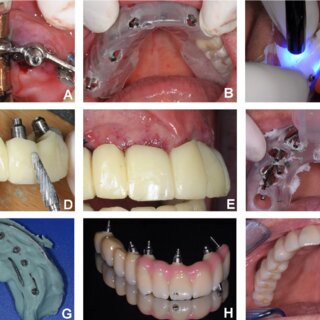Compassionate Care: Essential Tips for Post-Surgical Patient Recovery
Post-surgical recovery can be a challenging time for both patients and caregivers. Whether the procedure is minor or major, the path to healing requires careful attention, patience, and compassion. As a caregiver, your role is crucial in supporting your loved one through this period.
Here are some essential tips for providing compassionate care to ensure a smooth and successful recovery.
1. Understand the Procedure and Recovery Needs
Before your loved one is discharged from the hospital, make sure you fully understand the procedure they underwent and the specific recovery needs.
Consult with their healthcare provider to get detailed instructions on post-surgical care, including medication schedules, wound care, and any dietary or activity restrictions. This information will help you anticipate the needs of your loved one and prepare accordingly.
2. Create a Comfortable Recovery Environment
Creating a healing environment is essential for effective recovery. Ensure the recovery space is clean, quiet, and comfortable. Arrange easy access to necessities such as medications, water, and tissues.
Ensure the area is well-lit to prevent trips or falls and consider renting medical equipment like adjustable lighting or mobility aids if needed. Adding personal touches, such as favorite books or photos, can enhance comfort and create a soothing atmosphere.
3. Assist with Medication Management
Proper medication management is critical to post-surgical recovery. Keep track of all prescribed medications and their schedules. Set reminders for yourself and your loved one to ensure medications are taken as directed. Be aware of potential side effects and contact the healthcare provider if any unusual symptoms arise. Your vigilance in managing medications can prevent complications and promote a smoother recovery.
4. Monitor Wound Care and Signs of Infection
If the surgery involves any incisions, proper wound care is essential to prevent infection. Follow the healthcare provider’s instructions for cleaning and dressing the wound. Keep an eye out for signs of infection such as increased redness, swelling, or discharge. If you notice any of these symptoms, contact the healthcare provider immediately.
5. Encourage and Facilitate Rest
Rest is a critical component of recovery. Encourage your loved one to get plenty of sleep and avoid strenuous activities. Help them find a comfortable position to rest and assist with any mobility issues they may have. Limiting visitors and noise can also contribute to a more restful environment. Remember, healing takes time, and rest is crucial for the body to recover fully.
6. Provide Emotional Support
Recovering from surgery can be emotionally taxing. Your loved one may experience anxiety, frustration, or even sadness during their recovery. Offer emotional support by being a good listener and providing reassurance. Engage in positive conversations and activities that can lift their spirits. Your compassionate presence can make a significant difference in their emotional well-being.
7. Assist with Daily Activities
Post-surgical patients may need help with daily activities such as bathing, dressing, or meal preparation. Assist them as needed while respecting their independence. If mobility is an issue, help with moving around the house or getting in and out of bed. Be patient and offer encouragement as they adjust to their temporary limitations.
8. Promote Healthy Nutrition and Hydration
Proper nutrition and hydration are vital for recovery. Prepare balanced meals that meet the dietary requirements specified by the healthcare provider. Ensure your loved one stays hydrated by offering plenty of fluids. If their appetite is affected, try smaller, frequent meals and snacks. Proper nutrition can aid in the healing process and boost their overall energy levels.
9. Keep Up with Follow-Up Appointments
Follow-up appointments are crucial to monitor the recovery progress and address any concerns. Help your loved one keep track of these appointments and provide transportation if needed. Attend the appointments with them if possible to stay informed about their recovery status and any additional care instructions.
10. Be Prepared for Emergencies
Despite careful planning, emergencies can occur. Have a plan in place for dealing with unexpected issues, such as severe pain, bleeding, or complications. Keep emergency contact numbers handy and know the location of the nearest urgent care or emergency room. Being prepared can help you respond quickly and effectively in case of an emergency.
In Conclusion
Providing compassionate care to a post-surgical patient involves more than just following medical instructions. It requires a holistic approach that addresses physical, emotional, and practical needs. By understanding the procedure, creating a comfortable environment, managing medications, monitoring wound care, encouraging rest, providing emotional support, assisting with daily activities, promoting healthy nutrition, keeping up with follow-up appointments, and being prepared for emergencies, you can significantly contribute to your loved one’s recovery journey.
Your dedication and care can make this challenging time more manageable and pave the way for a successful recovery. Remember, compassionate care not only heals the body but also nurtures the spirit, making the road to recovery a little smoother.






